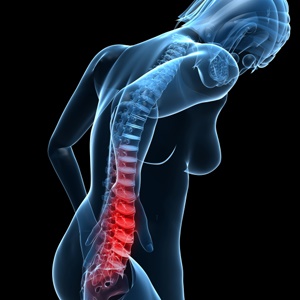
In view of research findings recently published in the Arbor Clinical Nutrition Updates, we consider potential problems that are linked to vegetarian diets.
Basic principles
Vegetarian diets can be divided into three broad categories:
1) Lacto-ovo vegetarian diets
Lacto-ovo vegetarian diets exclude all meat, fish and poultry products, but still permit the use of milk and dairy products (which is where the "lacto" part of the name originates) and eggs (the "ovo" part of the name).
According to the American Dietetic Association (ADA) in their 1993 "Position Paper on Vegetarian Diets", lacto-ovo vegetarian diets should generally not cause deficiencies of iron, calcium, or protein.
In fact, the ADA goes as far as to say that "well-planned vegetarian diets are safe for infants, children and adolescents, meeting all their nutritional requirements for growth. They are also adequate for pregnant and lactating women."
The ADA does caution that special attention must be paid to ensuring that vegetarian diets contain enough calcium, iron, zinc and vitamins D and B12 (Krause, 2000). I would personally add omega-3 fatty acids, which can be obtained from omega-3 enriched foods such as milk and eggs, or from flaxseed oil.
2) Lacto vegetarian diets
These vegetarian diets are identical to the diets described above, but they omit the use of eggs.
The same recommendation applies to lacto vegetarian diets, namely that they must be well planned, preferably under the guidance of a dietician to ensure that they are fully balanced and don't cause deficiencies.
Some supplementation of iron, zinc, vitamins D and B12 may be necessary.
3) Vegan or macrobiotic diets
According to Krause (2000), these vegetarian diets that prohibit the use of any foods of animal origin (i.e. no milk or dairy products and no eggs) are "the only ones that incorporate any real risk of inadequate nutrition, and this can be avoided by careful planning."
The recent Arbor publication also reports that a study comparing the risk of bone fracture (osteoporosis) in meat eaters, vegetarians and vegans, found that vegans were 15% more likely to have bone fractures than meat-eating subjects.
Another study conducted in Holland found that adolescents following a macrobiotic diet for the first six years of life were more prone to low vitamin B12 levels (50% less) and that this lack of vitamin B12 was significantly linked to low bone density (Arbor, 2007).
Vegan diets, which exclude all meat, fish, eggs, milk and dairy products and are solely based on eating foods of plant origin, may result in deficiencies of calcium, iron, zinc, protein, vitamin B12 and vitamin D (particularly in countries were exposure to sunlight is limited), as well as omega-3 fatty acids.
Pros and cons of vegetarian diets
On the one hand, research shows that people who follow lacto-ovo vegetarian diets are seldom prone to deficiencies and generally have lower total and saturated fat and cholesterol intakes and higher dietary fibre and phytonutrient intakes (which are highly positive attributes that help to prevent heart disease and certain types of cancer).
On the other hand, the stricter vegetarian diets may cause deficiencies of important nutrients and could increase one's risk of osteoporosis.
Solutions
More than 10 million people in the USA and many thousands of South Africans use one or other version of a vegetarian diet for reasons of religion or philosophical or ecological concern (Krause, 2000).
If you propose to use a vegetarian diet, then the most important step towards ensuring that your diet is well balanced and nutritious is to consult a dietician so that the "well-planned" admonition of the ADA can be fulfilled.
See a dietician, especially if you intend using a vegetarian diet for children or adolescents, if you are pregnant or breastfeeding, or if you find that you're as energetic as you would like to be.
General tips
The following tips should help to make your diet more balanced:
- If possible, use a lacto-ovo-vegetarian diet because it eliminates problems with inadequate calcium, protein, vitamin B12 and vitamin D intake. Also use foods enriched with omega-3 fatty acids (nowadays some milk products, eggs and even bread are enriched with omega-3). Otherwise use flaxseed oil supplements, which contain what is called a 'precursor' of omega-3, which is converted into EPA and DHA (the true omega-3 fatty acids) by the body.
- Make sure that the breakfast cereals you eat are enriched with iron, zinc and vitamin B12. In the USA, breakfast cereals are among the richest sources of dietary iron and zinc. In South Africa, maize meal and wheat flour (and all products made from them) are enriched with iron, zinc, vitamins A, B1, B2, B6, niacin, and folic acid. Have a glass of orange juice (rich in vitamin C) for breakfast with your cereal as vitamin C improves the absorption of iron.
- Vegans should consider taking a combined calcium, vitamin D and vitamin K2 supplement as the calcium in most plant foods is bound by compounds called oxalates and is not as bioavailable as calcium in milk and dairy products. According to the latest research, calcium supplements should contain both vitamins D and K2 to prevent the calcium from being deposited in the arteries instead of the bones.
- Expose your skin to sunlight for about 20 minutes a day to help your body make sufficient vitamin D to build strong bones.
- Vegans should take a vitamin B12 supplement to ensure that they do not develop a deficiency which can cause megaloblastic anaemia and may contribute to osteoporosis.
- Use soya products (including tofu) and other legumes (dry, cooked beans, peas and lentils) to boost your protein intake.
- Do plenty of weight-bearing exercise to strengthen your skeleton and help prevent osteoporosis.
References:
(Krause's Food, Nutrition, & Diet Therapy, 10th Ed. Eds. L K Mahan & S Escott-Stump, 2000. WB Saunders Co, Philadelphia; Arbor Clinical Nutrition Updates 2007. Vegetarianism and bone health. Issue 282, Sept 2007)




 Publications
Publications
 Partners
Partners










